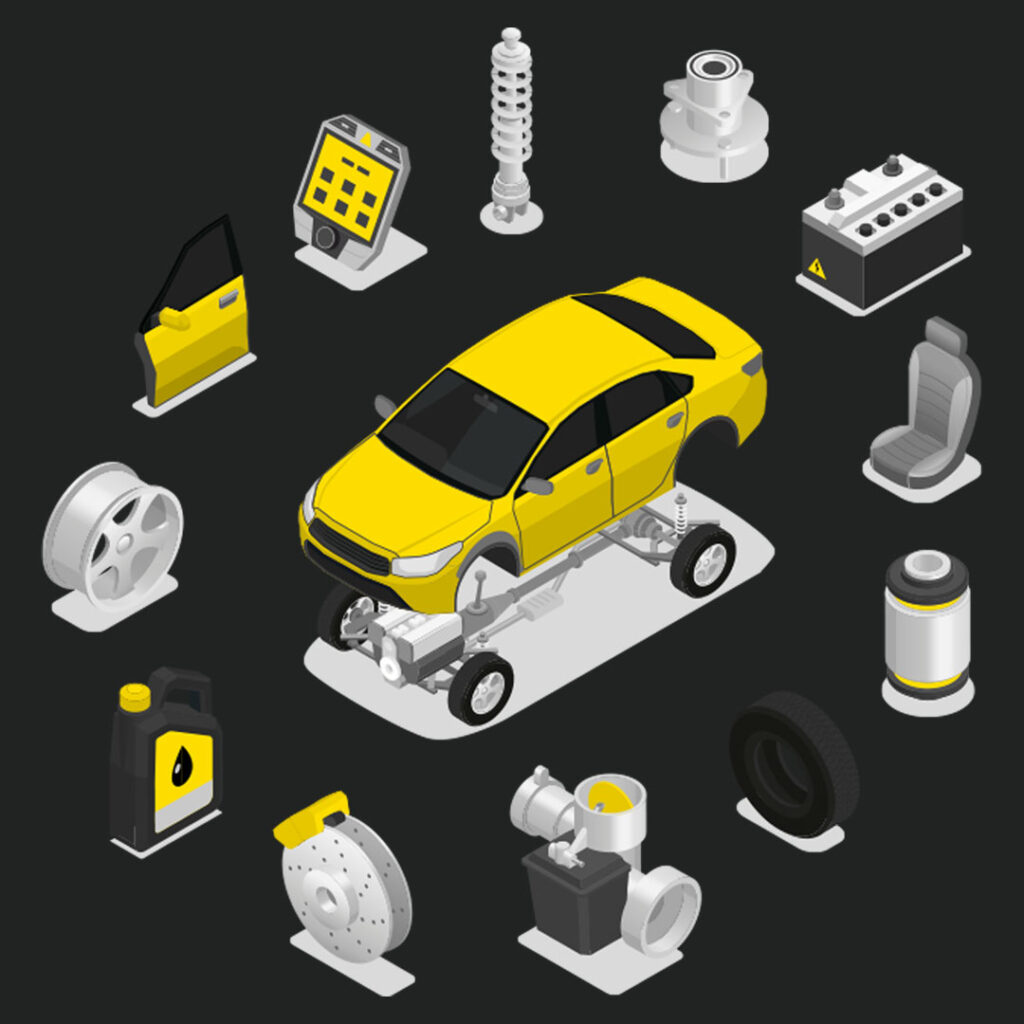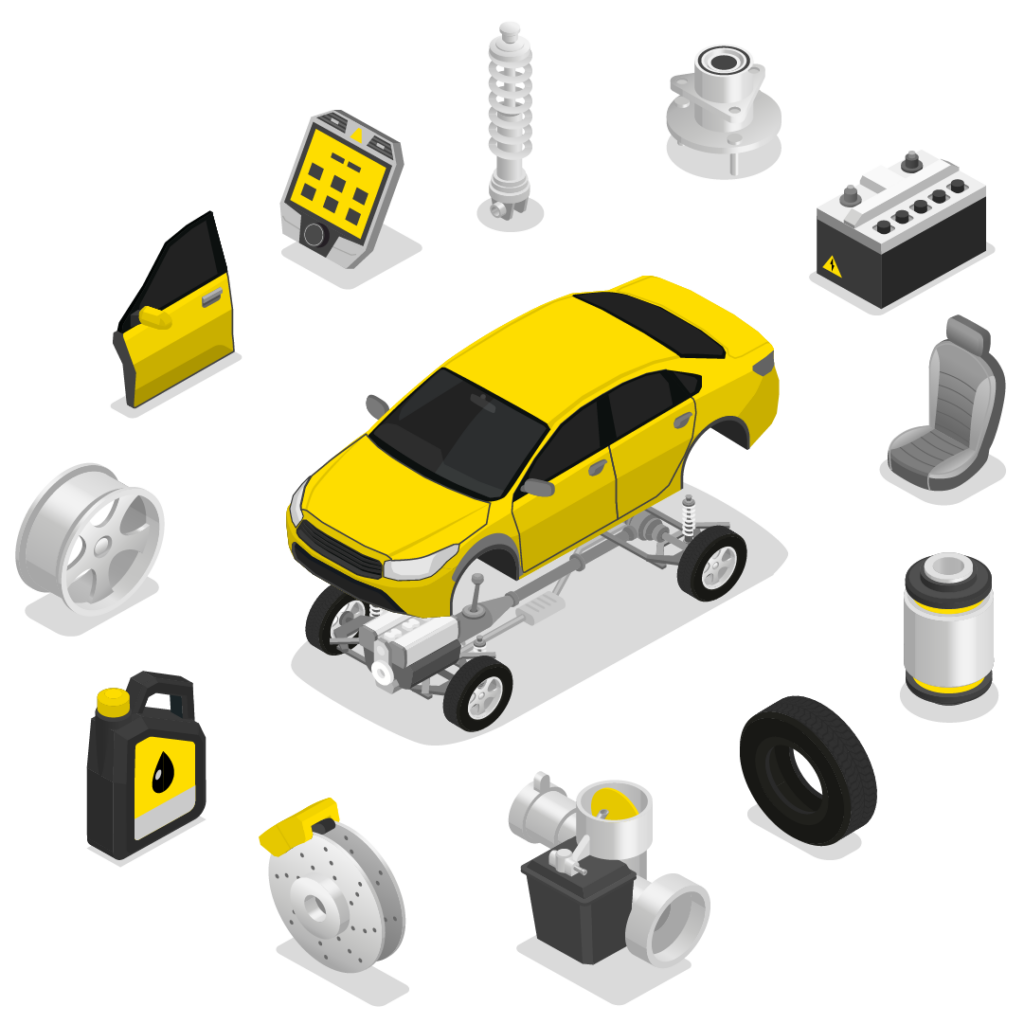Companies that produce automotive parts have a lot of people counting on them. The end customers, the people driving the cars, need to know their vehicle is safe and they got their money’s worth. The dealership selling the car has their local reputation on the line. The OEM doesn’t want to deal with expensive recalls and even more expensive lawsuits. All of this falls on your organization. It’s a lot to get right!
The solution is to create and go by a quality management system. Let’s dig a bit deeper into what the term means, why it’s so important to adhere to one, and what yours should include.
What is a Quality Management System?

By a pretty simple definition, a quality management system is “ a collection of business processes and functions aimed at continuous improvement of quality to ensure customer expectations and requirements are met or exceeded.” It is a framework of organized:
- Structures
- Methods
- Techniques
- Policies
- Procedures
- Processes
- Resources
The federal government tells us that a quality management system is “a means of ensuring that an organization is meeting requirements and continuously improving its processes.” In reality, a quality management system is so much more than that. They are the method by which companies like yours are able to ensure schedules, responsibilities, relationships, contracts, and agreements are meeting and exceeding product safety standards within the automotive industry.
Why This is so Important
A quality management system helps your company to meet your regulatory and customer requirements, plus make continuous improvements to your operations. The main purpose of implementing a quality management system at your organization is to ensure the safety of the final products – in your case the cars. When you’re meeting the customer’s requirements, this helps to instill confidence in your organization.
Recurring non-conformities destroys your customers’ confidence in what you produce for them. This is why another goal of a quality management system is to provide consistency. The OEMs you sell to should know what to expect from your organization. They should receive the same quality in each and every automotive part they purchase from you. If you can provide that peace of mind, you will be able to delight your existing customers while at the same time creating a stellar reputation within the industry for quality that will bring even more customers with additional sourcing opportunities and or contracts your way.
The Financial Benefits You Can Expect
While the emphasis of a quality management system is on reliability and not on profits, it would be naïve not to admit there is a financial incentive in place. When your OEMs know they can rely on you for top-quality parts, they’ll order from you again. This loyalty leads to repeat business and additional revenue.
Meeting your internal requirements ensures compliance with regulations as well as creates room for expansion, growth, and profit. Anytime you’re working efficiently and don’t need to slow down or stop to address non-conformities, your organization will reap the financial rewards. When you’re producing high-quality parts each and every time, it leads to more customers, more sales, and more repeat business!
The proper implementation of this type of system will increase a company’s bottom line. In fact, many companies have successfully used quality management systems to skyrocket their earnings in ways that weren’t possible without the guidelines in place.
What Your Quality Management System Should Include
The right quality management system can help you improve your business functions in your day-to-day operations. You want a formalized system that documents:
- Processes
- Procedures
- Audits
- Inspections
- Responsibilities for achieving quality objectives and policies
The best quality management systems are based on recognized standards, like the ISO 9001 provided by the International Organization for Standardization. This being said, your business is unique and so your quality management system will be as well. You should develop one that addresses your individual needs, goals, values, and customers. Anything that allows you to define, improve, and control processes, reduce waste, prevent mistakes, or lower costs without sacrificing quality should be included.
Partner With Team Quality Services
While important, quality management systems are highly complex. Far too many companies struggle with successfully implementing them and adhering to them afterwards. You may not have an internal audit system that makes this kind of system plausible. Don’t let the quality your customers expect fall to the wayside! Doing so could be the difference between a successful automotive product launch or a new business hold.
While this may seem like a lot to put in place, you don’t need to handle it alone. It’s our mission to do the work that makes your job (and your life!) a little easier. When you partner with Team Quality Services, much of this can be handled by our Quality Liaisons!
Quality issues can surface at any point and at any time in the supply chain. Our team acts as your eyes and ears at your customer, the OEM location. When you create and implement a quality management system and then bring in our team to ensure it’s all handled properly, you’re well on your way to reducing nonconformities, cutting down on wasted time, boosting productivity, and bringing in new revenue as well. When your products are all high-quality and your processes are both compliant and efficient, everyone wins!







